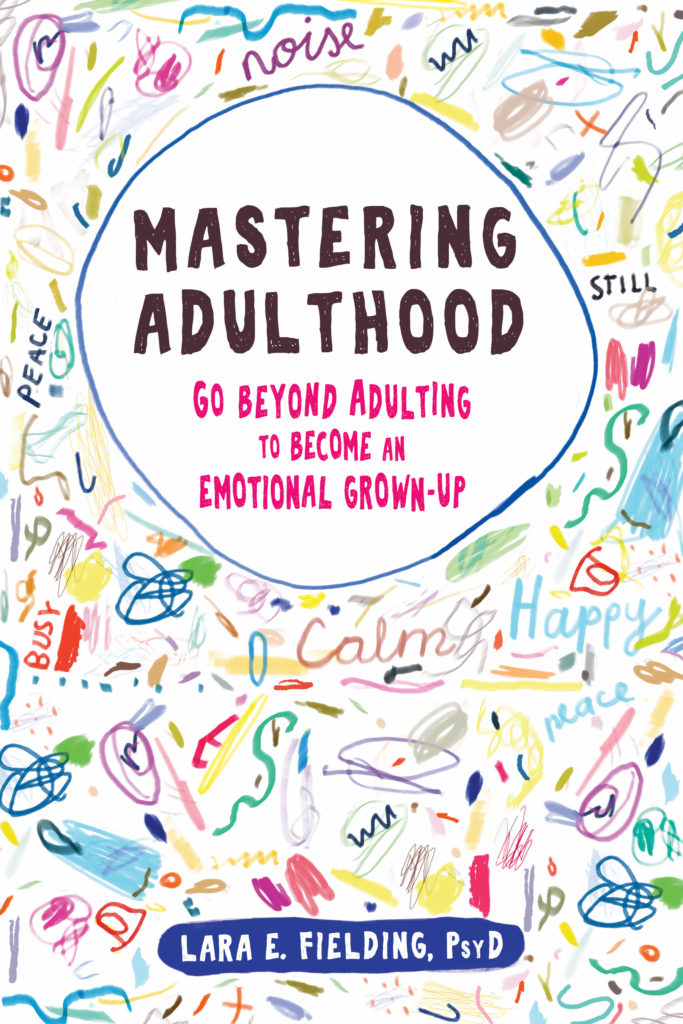Of course we all want to feel good about ourselves! Striving for success, accomplishing goals, feeling appreciated are all a part of a healthy life well lived.
But is there a point at which the pursuit of subjective self worth can trip us up? Like anything in excess, self-esteem can have a dark side, and it may not be exactly what you think!
The Self-Esteem High.
Self-esteem is our ‘subjective evaluation of self worth.’ So the obvious dark side of too much self esteem might be narcissistic tendencies. We all know the criteria: exaggerated sense of self-importance, entitlement, arrogance, chronic pursuit of success and admiration. Yep! Sounds like a self-esteem junkie!
But the narcissistic traits may not be the worst part (at least not for the pursuer!). The traits described above are like the high. Very few of us worry about feeling too good about ourselves. But what about the addiction and withdrawal? When we are hooked on the former (external reinforcement), we will eventually face the latter.
It’s in the gap between the high of success and the crash from inevitable disappointments, failures, and negative feedback that we feel the pain. Only in these moments can we ask ourselves, ‘Am I a self-esteem junkie?”
Like any addict, when the high begins to fade, withdrawals compel us to search eagerly for the next hit of external reinforcement to feed our habit: more stuff, more ‘likes’, more reassurance that we are special! Warning signs of self-esteem dependence include: chronic social comparisons, reassurance seeking, envy, and hyper-sensitivity to criticism.
The Self-Esteem Trap: The Pull into Blame
It’s a slippery slope into the trap between inflated self-evaluation on the one side and destructive self-judgment on the other.
These two modes of thinking are two sides of the same coin. In the absence of external reinforcement, it’s a common autopilot reaction to look to social comparisons or someone to blame. But this way of thinking and behaving can be a trap!
Have you ever noticed yourself getting pulled in? You get the less than stellar job review, meet someone who has more success in an area you covet, or simply haven’t met your own goals and expectations. The autopilot reaction is to hold tightly to protecting our self-esteem as a means of feeling more empowered, less vulnerable.
To avoid the feelings of vulnerability, its not uncommon to seek for something outside ourselves to prop ourselves up.
It’s when we hold on too tightly to our self-esteem from the outside that the dark side of this habit shows up. Not only do we overlook possible opportunities to learn from our mistakes, but also this strategy is often laced with feelings of anger, aggression and disconnection. Judging thoughts of “not fair,” “why me?” step in to protect us. But this is where the slope gets even more slippery!
Eventually, the façade of self-esteem starts to give way (like an old castle wall), exposing the raw, dark, unvisited places within. Here is where shame and sadness reside. If we have lived a life clinging to the daylight of self-esteem, there has been little attention to these parts of ourselves.
Naturally, our first impulse when we experience this darker place in us is to try to do what worked in the past: blame and judge. But that old habit doesn’t work here cause there is no one here but you!
So the old habit of judgmental thinking is now a weapon you turn on yourself.
Before you know it you can get caught in the trap of harsh self-criticism and loathing, and can’t find a way out! Judgmental thinking is like a supercharger for your emotions, regardless of where it is aimed!
Bottom Line: Self-esteem is an important part of a life well lived. But, like anything that is good for us, over reliance as a way to squash our emotions and protect us from vulnerability is where it becomes problematic. Because self-esteem is based on making better/worse judgments, it sets up a nasty autopilot thinking trap!
Self Compassion as the Skillful Alternative
Kristen Neff has conducted groundbreaking research on the positive effects of self-compassion on mental health and life satisfaction. She notes in her fabulous TED Talk that high self-esteem is linked to performance and the need to feel special. Thus, the self-esteem addiction can create chronic feelings of separateness and isolation, due to the need to be better than others, so we can feel good about ourselves.
Self-compassion on the other hand promotes a sense of kindness and connectedness to others in our humanity, and has been linked across studies to better mental health outcomes. Dr. Neff’s website provides an wonderful self compassion test for you to check if you tend to fall into the self judgment trap, and offers some excellent self compassion recordings to practice.
The Cost of Clinging to Self-Esteem
Like any autopilot way to make ourselves feel better, self-esteem can become a habit. Like addicts we become hooked on the external sources of reinforcement at the cost of authentic connection to our true selves. Over time, we loose our ability and tolerance for looking inward, listening and hearing our authentic needs, and connecting to others in our inherent humanity.
The Practice: Gaining Strength From the Inside.
The key to staying out of the trap is holding a balance between healthy self-esteem and authentic self-awareness. Willingness and self-compassion skills are the antidote to toxic judgment. These are the most challenging and most fruitful skills in pursuing a life lived well. Next time you feel the pull of jonesing for a self-esteem boost, practice doing something different.
Practice turning to strength from the inside:
1. Validate Emotions: Honor the discomfort by saying to yourself, “here is my suffering.”
2. Check Thoughts: Notice the pull towards judgmental thinking. Find a balanced thought about the situation, such as, “This was less than what I had hoped for, AND I will work to do my best next time.”
3. Change Behavior: Refrain from laying blame or propping yourself up with social comparisons. Allow the normal human experience of disappointment to be present, and take the needed action to move towards your values.
If you have questions about how to be more skillful in your life, I hope you will send me a message in the comments section! Or sign up for the Mindful-Mastery SKILL WEEKLY newsletter, follow me on Facebook, Twitter, or Instagram.


